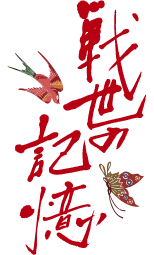
“War Experiences in the south”
“War Experiences in the south”
Seijiro Hirata, 97 years old
(Place of birth: Kumejima Village, Okinawa Prefecture)
(What sort of military training did you have at your school?)
My school was called “Youth School” and we practically pretended to be soldiers almost every day. It was ridiculous. We also had to stab a straw figure with a bamboo spear and act like soldiers fighting with a bayonet.
I took the physical exam for conscription in 1940. I was examined from head to toe in the nude wearing nothing but a loincloth. I was assigned to the 3rd Corps stationed in Taipei, Taiwan. I was with the corps for 6 months, then transferred to the military police and stayed in Taiwan for one year.
Then after that, I was sent from Taiwan to the Philippines. After the completion of the 1st Operation, I was assigned to the assistant military police, participated in the Java Operation and eventually landed on Bali. I was sent to the front in 1942. Although my company was sent to the front in 1941, I had to stay in Philippines as a part of the assistant military police for another year. I was one year behind.
(How did you feel when you were sent to the front?)
I thought, “Having gone through fighting the war against America and other countries in the world, Japan is great as expected.” I was sent to the south. When the 1st Philippines Operation was over, I demanded that the assistant military police send me to the south, then I participated in the Java Operation and landed on Bali. Our company was a single company and was a bicycle infantry called the “Sliver Wheels Troops.” While we were landing our bicycles from our ship, the war had finished.
(Could you obtain any information on what was going on in your home island, Okinawa?)
We listened to the radio every day and we learned that all the Japanese corps in Okinawa performed Gyokusai (dying before dishonor). I thought that it would be the consequence of having gone into the war unreasonably. Although I was worried about Kumejima. I thought that there no longer would be anyone in Kumejima.
(At the front)
We were guarding the coast line. We were always hungry and wanted to eat until we could get full. We fed ourselves, growing rice in the fields, picking up bamboo shoots in the bamboo groves which we could find all over the place and picking up potato leaves in swamps. As the food supply was so scarce, we had a hard time such as making rice gruel in messtin lid. Our three meals a day were very poor in nutrition. Many suffered nutrition deficiency.
About one and a half years after the war was over, I was demobilized and returned home. Before returning to Okinawa, I stayed at a farmer’s house without any wage in Kagoshima because I thought that it would be much better that I could eat until I could be full.
Shortly before the war was over, we had a test for everyone in the company to run 100 meters with a 60-kg straw bag over our shoulders. One night, our company got an order to move flamethrowers. I was the leader of the squad consisting of six soldiers and ran with the 60-kg flamethrower over my shoulder. That probably was the reason why we were forced to run with a 60-kg straw bag over our shoulders. Neither the soldiers from Okinawa nor ones from mainland Japan did well.
(My feeling when the war was over)
When the war started, I was sure that I would be the first to die. That was the reason why the end of the war was the happiest news for me. We all dressed up formally and stood in a row while we listened to the radio broadcast notifying us of the end of the war. Many of us were crying, but I smiled after saying, “I am glad.” I was so happy. Although all the officers and senior officers were crying, some of us soldiers smiled happily.
(Upon demobilization)
We arrived at an island in the afternoon, but none of us could get off the ship. We had to spend a night on the ship. I felt that I would rather dive into the sea and go home. Then, we crossed the sea from a small island to another by a boat and eventually gathered together on Sumbawa Island by walking, called “Kougun” (marching). After returning all our weapons there, we were demobilized.
(After the demobilization)
While I was working at an evacuation ship office, one of the post office workers came and told me, “Mr. Hirata, would you like to try to send a postcard home? It might not be able to be delivered, but why don’t you try?” and I did. The postcard fortunately was delivered to my home and I was the first one in my village who was confirmed to be alive.
(Looking back at the war)
I always think, “It should not happen again!” as I had to spend a difficult time in the military system. The young generation today does not have to face the examination for conscription or have a difficult time in the military. I am envious of their fortune.
Seijiro Hirata, 97 years old
(Place of birth: Kumejima Village, Okinawa Prefecture)
(What sort of military training did you have at your school?)
My school was called “Youth School” and we practically pretended to be soldiers almost every day. It was ridiculous. We also had to stab a straw figure with a bamboo spear and act like soldiers fighting with a bayonet.
I took the physical exam for conscription in 1940. I was examined from head to toe in the nude wearing nothing but a loincloth. I was assigned to the 3rd Corps stationed in Taipei, Taiwan. I was with the corps for 6 months, then transferred to the military police and stayed in Taiwan for one year.
Then after that, I was sent from Taiwan to the Philippines. After the completion of the 1st Operation, I was assigned to the assistant military police, participated in the Java Operation and eventually landed on Bali. I was sent to the front in 1942. Although my company was sent to the front in 1941, I had to stay in Philippines as a part of the assistant military police for another year. I was one year behind.
(How did you feel when you were sent to the front?)
I thought, “Having gone through fighting the war against America and other countries in the world, Japan is great as expected.” I was sent to the south. When the 1st Philippines Operation was over, I demanded that the assistant military police send me to the south, then I participated in the Java Operation and landed on Bali. Our company was a single company and was a bicycle infantry called the “Sliver Wheels Troops.” While we were landing our bicycles from our ship, the war had finished.
(Could you obtain any information on what was going on in your home island, Okinawa?)
We listened to the radio every day and we learned that all the Japanese corps in Okinawa performed Gyokusai (dying before dishonor). I thought that it would be the consequence of having gone into the war unreasonably. Although I was worried about Kumejima. I thought that there no longer would be anyone in Kumejima.
(At the front)
We were guarding the coast line. We were always hungry and wanted to eat until we could get full. We fed ourselves, growing rice in the fields, picking up bamboo shoots in the bamboo groves which we could find all over the place and picking up potato leaves in swamps. As the food supply was so scarce, we had a hard time such as making rice gruel in messtin lid. Our three meals a day were very poor in nutrition. Many suffered nutrition deficiency.
About one and a half years after the war was over, I was demobilized and returned home. Before returning to Okinawa, I stayed at a farmer’s house without any wage in Kagoshima because I thought that it would be much better that I could eat until I could be full.
Shortly before the war was over, we had a test for everyone in the company to run 100 meters with a 60-kg straw bag over our shoulders. One night, our company got an order to move flamethrowers. I was the leader of the squad consisting of six soldiers and ran with the 60-kg flamethrower over my shoulder. That probably was the reason why we were forced to run with a 60-kg straw bag over our shoulders. Neither the soldiers from Okinawa nor ones from mainland Japan did well.
(My feeling when the war was over)
When the war started, I was sure that I would be the first to die. That was the reason why the end of the war was the happiest news for me. We all dressed up formally and stood in a row while we listened to the radio broadcast notifying us of the end of the war. Many of us were crying, but I smiled after saying, “I am glad.” I was so happy. Although all the officers and senior officers were crying, some of us soldiers smiled happily.
(Upon demobilization)
We arrived at an island in the afternoon, but none of us could get off the ship. We had to spend a night on the ship. I felt that I would rather dive into the sea and go home. Then, we crossed the sea from a small island to another by a boat and eventually gathered together on Sumbawa Island by walking, called “Kougun” (marching). After returning all our weapons there, we were demobilized.
(After the demobilization)
While I was working at an evacuation ship office, one of the post office workers came and told me, “Mr. Hirata, would you like to try to send a postcard home? It might not be able to be delivered, but why don’t you try?” and I did. The postcard fortunately was delivered to my home and I was the first one in my village who was confirmed to be alive.
(Looking back at the war)
I always think, “It should not happen again!” as I had to spend a difficult time in the military system. The young generation today does not have to face the examination for conscription or have a difficult time in the military. I am envious of their fortune.


